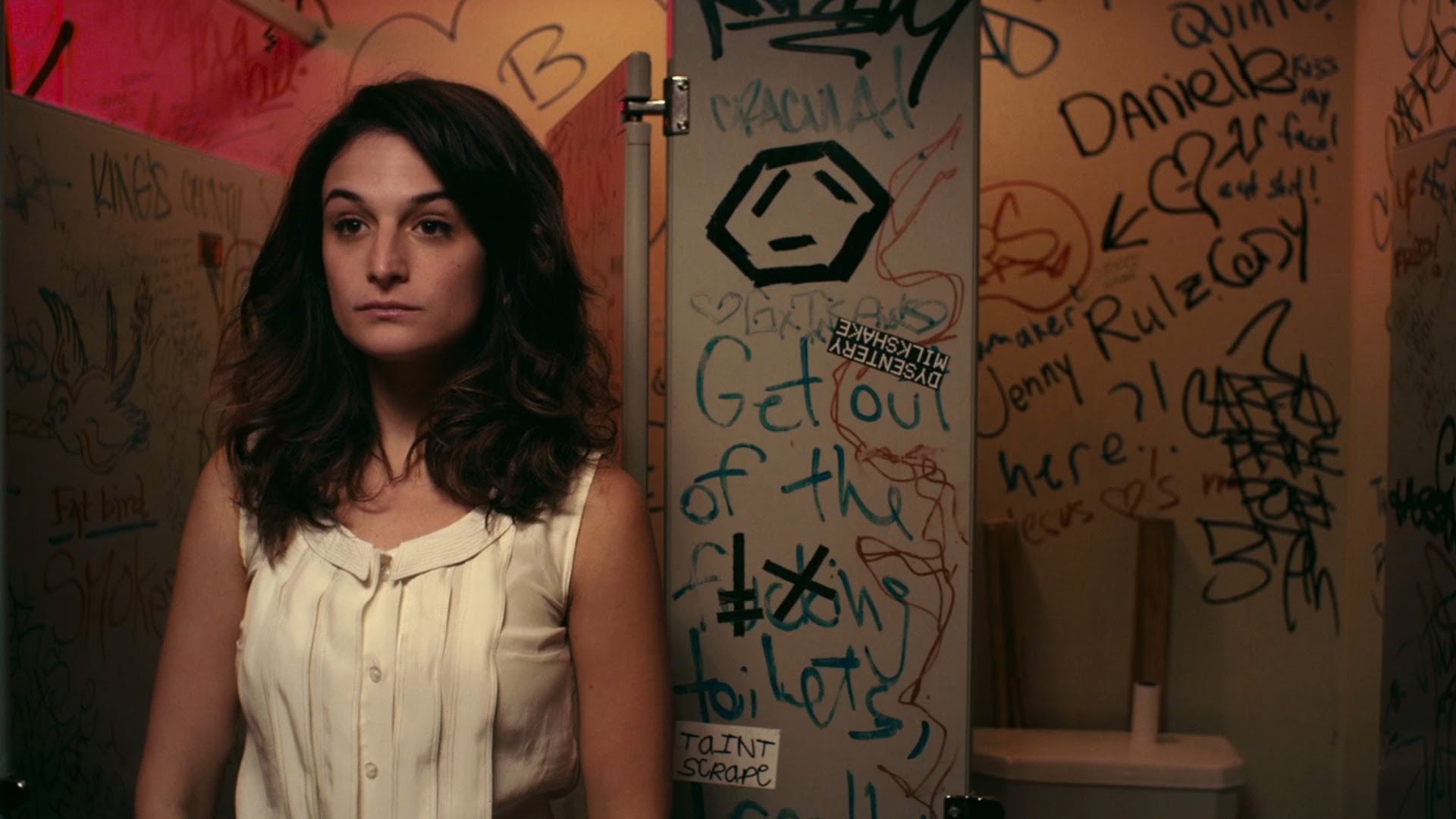The Mary Sue Interview: Director Gillian Robespierre On Her Non-Traditional Rom-Com Obvious Child
Today in "movies you should see."

Obvious Child starts with its heroine, stand-up comedian Donna Stern (Saturday Night Live alum Jenny Slate) telling a joke about vaginal discharge. I could write pages about how this movie isn’t your average rom-com—how it has a frankness that a lot of its Hollywoodized brethren don’t, how its characters feel real, how they have the same sort of conversations you and your friends probably have (but funnier)—but that opening joke says it all.
So, for that matter, does the central plot of the film: Donna gets dumped, loses her job, has a one-night stand, and has an abortion… all in time for Valentine’s Day. It’s been dubbed “the abortion comedy,” but don’t call it that—for director/co-writer Gillian Robespierre, Obvious Child is about a character, about growing up, not about abortion. The decision not to stigmatize abortion in any way was a conscious one on the part of Robespierre—at no point does anyone tell Donna “abortion is wrong” or treat it as anything other than her own personal decision—and the movie is better for it.
Robespierre took the time to chat with us about the film, the genre, and that opening scene. Obvious Child is out now in limited release across the country.
Rebecca Pahle (TMS): At one point in the movie Donna mentions that she has trouble relating to the average rom-com. Is that something you feel as well?
Gillian Robespierre (GR): No, not at all! That was more tongue-in-cheek. I love romantic comedies. I think that was cemented the moment I started watching movies. And I can relate to them, in a nostalgic way. I love the genre. I think, you know, what you’re speaking about is a couple interviews I’ve given that talk about how romantic comedies of late feel less modern. The leading ladies don’t ever look like me or sound like how my friends and I sound. It was more like a wink. Because I really do love a rom-com, a good one. And I think what we were trying to address in making Donna Stern and Jenny Slate the leading lady was the idea that the leading actress can look and sound many different ways, it’s not just one typical look or standard.
TMS: I think maybe I was just projecting—because I oftentimes have a hard time relating to romantic comedies, because they’re so sanitized sometimes. Which is one of the things like I liked about Obvious Child, that it didn’t shy away from more real-life subjects and realistic characters.
GR: Yeah, that our leading lady can be a Jewish woman.
TMS: What were some of the rom-coms that you liked most, growing up?
GR: Well, when I was very young, every single John Hughes movie, from 16 Candles to Pretty in Pink, and then as I got a little older I got more into the subversives, like Say Anythying and The Graduate. And then when I discovered Nora Ephron, I couldn’t get off that train.
TMS: This is a really specific question, so I apologize if there’s no answer—but the opening of the movie, with Donna delivering her “cream cheese” vaginal discharge joke in front of an audience, is one of the best beginning scenes I’ve seen in recent memory. Were you always going to start with that?
GR: Yeah, I had it in the script, it’s a holdover from the short… that was made in 2009 with Karen Maine, Anna Bean, and myself, without Jenny Slate. So that made it through to the feature, ’cause I just could not let that one go. Donna doing standup about her vagina and what it does all day and how busy they are all day creating discharge [laughs] was always going to be in the movie.
TMS: What changes were there in the transition from short to feature?
GR: It changed dramatically. We all became confident as storytellers and as performers, but ultimately the heart and the story is the same, in the sense that it’s about this woman named Donna, and it’s her story about what it’s like finding your confidence after being dumped in a public restroom, about figuring out how to control your voice and find your voice. And to have a one-night stand and an unplanned pregnancy and then an abortion, and a happy ending! Those were the pieces from the short that definitely carried over to the feature. But we built and expanded on that world. It’s no longer the same movie, but it has the same tone. We’re seeking the same sort of story where the leading lady is actually funny, [that] shows a confidence-based abortion [with] very little stigma of judgement and shame crowding it. That’s really the heart of the short, and the heart of the feature.
TMS: Given the controversial nature of abortion, was there any pushback when you were making the film? Was anyone like “Oh, no, we don’t want to fund this.”
GR: No, no. We partnered with people who were excited about telling the story, who were like-minded and who were also really excited to work with Jenny Slate. From the beginning, from casting to crew to working with Richard Kind, David Cross, Gabe Liedman, and Gaby Hoffmann. You have this cast, we have the most wonderful New York City crew, and we have financing from grants that we won, Tribeca All Access, from film equity from production companies to over 600 Kickstarter backers. I think everyone who collaborated on this film was really excited to tell the story, and they were really excited to work with Jenny Slate. So we didn’t have any doors slammed in our faces. There was nothing but very positive collaboration experience with everybody.
Are you following The Mary Sue on Twitter, Facebook, Tumblr, Instagram, & Google +?
Have a tip we should know? tips@themarysue.com